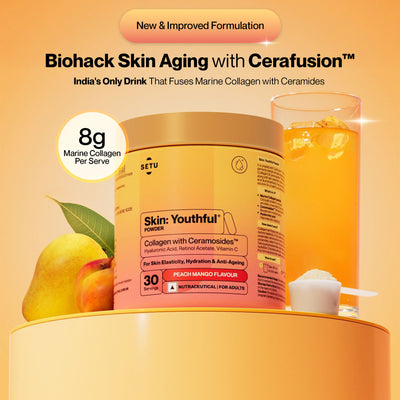Top 7 Vitamins For Eye Health You Can Consider
16 Apr 2021
When it comes to diets and nutrition, we tend to overlook the importance of nutrients for eyesight and healthy vision. Heart healthy diets and weight loss diets are incredibly popular, but nutrition is just as important for your eyes. On the plus side, healthy diets that are low in fat and sugar, while dominated by whole foods that are rich in nutrition will also benefit your vision. However, because of the difficulty that most of us have getting optimal nutrition from dietary sources alone, it helps to be aware about the role each mineral or vitamin is good for eyesight. You can then turn to nutritional supplements to compensate for any deficiency.
Vitamins that are good for eyesight improvements:
Vitamin A
When talking about any vitamin good for eyesight, vitamin A invariably tops the list. This vitamin is required for maintaining good eyesight as it plays a vital role in the health of photoreceptors, which are light-sensing cells. Deficiency in vitamin A can cause night blindness, dryness of the eye, and more serious conditions that can even result in loss of vision (1). Mainly obtained from animal-based foods and dairy, this deficiency is common in vegans, but provitamin A carotenoids like beta-carotene can be obtained from foods like spinach, carrots, and broccoli.
Vitamin E
Oxidative stress is a significant contributor to eye conditions that develop over time, which is why another vitamin good for eyesight is vitamin E. As a potent antioxidant it reduces free radical damage, with studies showing that supplementation can protect against progressive macular degeneration, which is a common degenerative eye disease affecting the macula – a pigmented area towards the center of the retina (2). Good vitamin E intake may also lower the risk of other eye diseases like cataracts. This vitamin for good eyesight can be found in nuts, seeds, leafy greens, and fish like salmon.
Vitamin C
Vitamin C is more than an immune booster, but is also a potent antioxidant, offering similar protection against age related macular degeneration to vitamin E (3). Another reason why it’s regarded as a vitamin good for eyesight is because it is needed for collagen production, which is an important protein for maintenance of the eye structure, including the cornea. Likewise, there is evidence that supplementation may lower the risk of cataracts by as much as 75 percent (4). Citric fruits, bell peppers, and spinach are all good sources of vitamin C.

B Vitamins B6, B9 and B12
This isn’t actually a single vitamin for good eyesight, but is a group that includes B1, B2, B3, B6, B9, and B12. All of these play a major role in eye health, lowering the risk of inflammation linked to high levels of homocysteine, which can give rise to degenerative eye disease (5). Similarly, BB1 or thiamine aids cellular function and energy utilization, B2 or riboflavin protects against oxidative damage, and B3 or niacin helps with energy utilization and may also lower the risk of glaucoma.
Lutein and Zeaxanthin
Although neither nutrient is strictly speaking a vitamin for eye health, these carotenoid antioxidants are essential for eye health. They are found in high levels in the macula, playing a major role in protecting the eyes against UV damage and blue light exposure (6). In fact, researchers have found that supplementation with a 6mg daily dose could lower the risk of macular degeneration by 43 percent (7). While these nutrients can be obtained from eggs, spinach, and green peas, you can boost your intake with supplements like SETU’s Eye Max.
Zinc
Zinc deficiencies are another common cause of vision impairment, especially night blindness. This is because the eyes have high zinc levels, since the mineral is a component of numerous important enzymes and also works like an antioxidant. Zinc supplementation has also been shown to slow degeneration of the macula and may improve visual sharpness (8). Although meats and seafood like oysters are regarded as the best sources of zinc, you can also get this nutrient for eye health from nuts and seeds like pumpkin seeds and peanuts.
Omega-3 Fatty Acids
Omega-3 fatty acids may not be a vitamin good for eyesight, but they are vital nutrients for eyesight. EPA and DHA don’t just play a critical role in brain and heart health, but are also found in high amounts in the retina and are needed for eye development in infancy. Studies also show that omega-3 supplementation may be beneficial for the treatment of dry eyes and could lower the risk of other eye conditions (9). The best sources of omega-3 fatty acids are fatty fish like salmon, but you can also take vegetarian omega-3 supplements.
Recommended Reads:
- https://www.setu.in/blogs/lifestyle/how-you-can-prevent-eye-floaters/
- https://www.setu.in/blogs/lifestyle/tips-to-take-care-of-your-eyes-when-you-wfh/
- https://www.setu.in/blogs/habits/maintaining-20-20-vision-in-2020-my-personal-hacks/
- https://www.setu.in/blogs/habits/natural-ways-to-improve-your-eyesight-do-they-work/
- https://www.setu.in/blogs/lifestyle/home-remedies-to-fix-puffy-eye/
Skin: Renew - Glutathione - Orange Flavour
- ₹1,996
- ₹1,996
-
₹2,600 - ( 23% OFF)
Categories
- Choosing a selection results in a full page refresh.
- Press the space key then arrow keys to make a selection.
this is the sidecart










